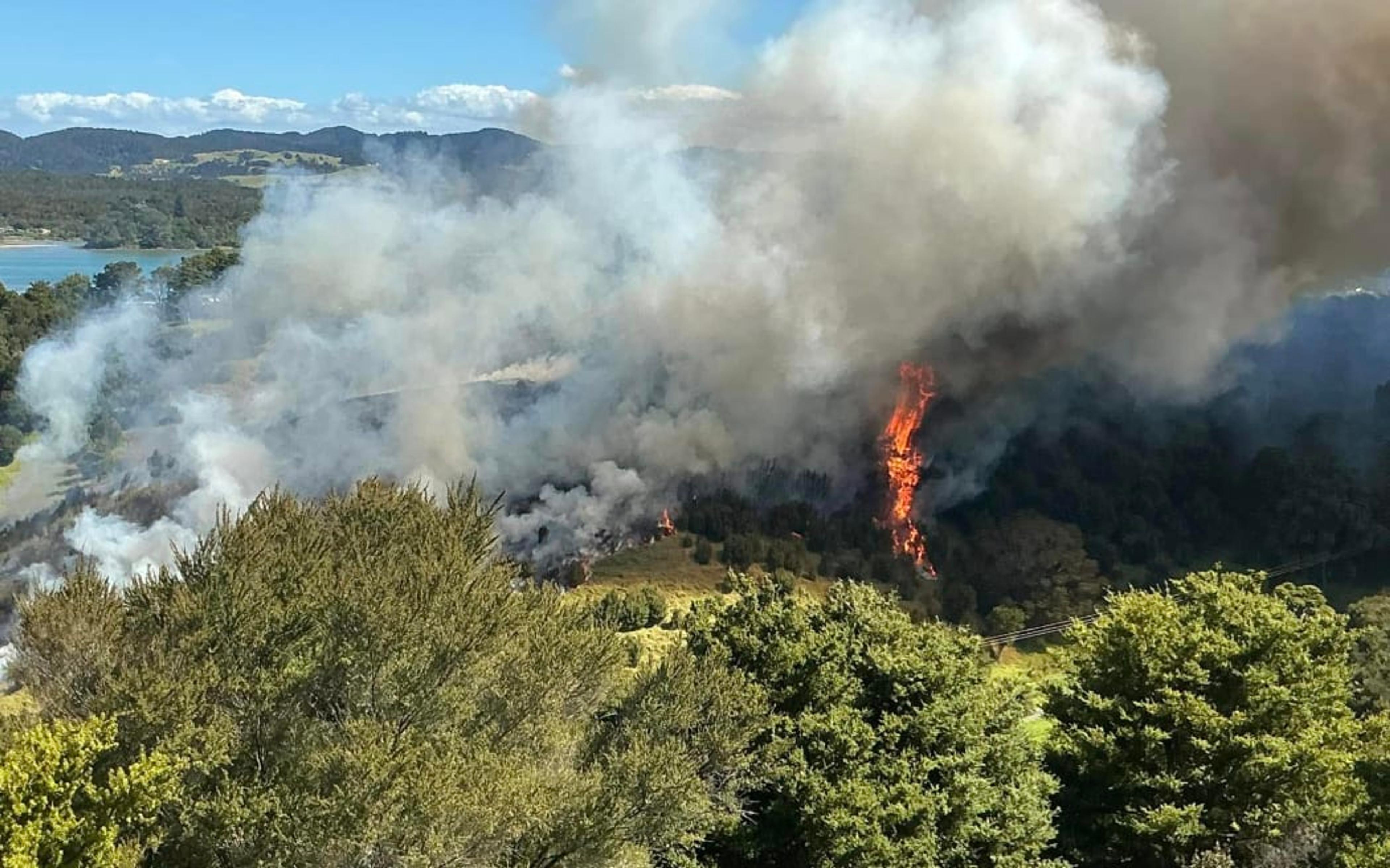

Rupene Amato (left) and Moeapulu Frances Tagaloa.
Photo/Supplied
Honouring the voiceless: Pacific advocates lead charge for abuse survivors
Moeapulu Frances Eileen Tagaloa and Rūpene Amato recognised in New Year Honours for services to survivors of abuse in care.


Two seasonal workers found dead at Bay of Plenty orchard

Pacific Warned: Global powers will act if island nations remain weak
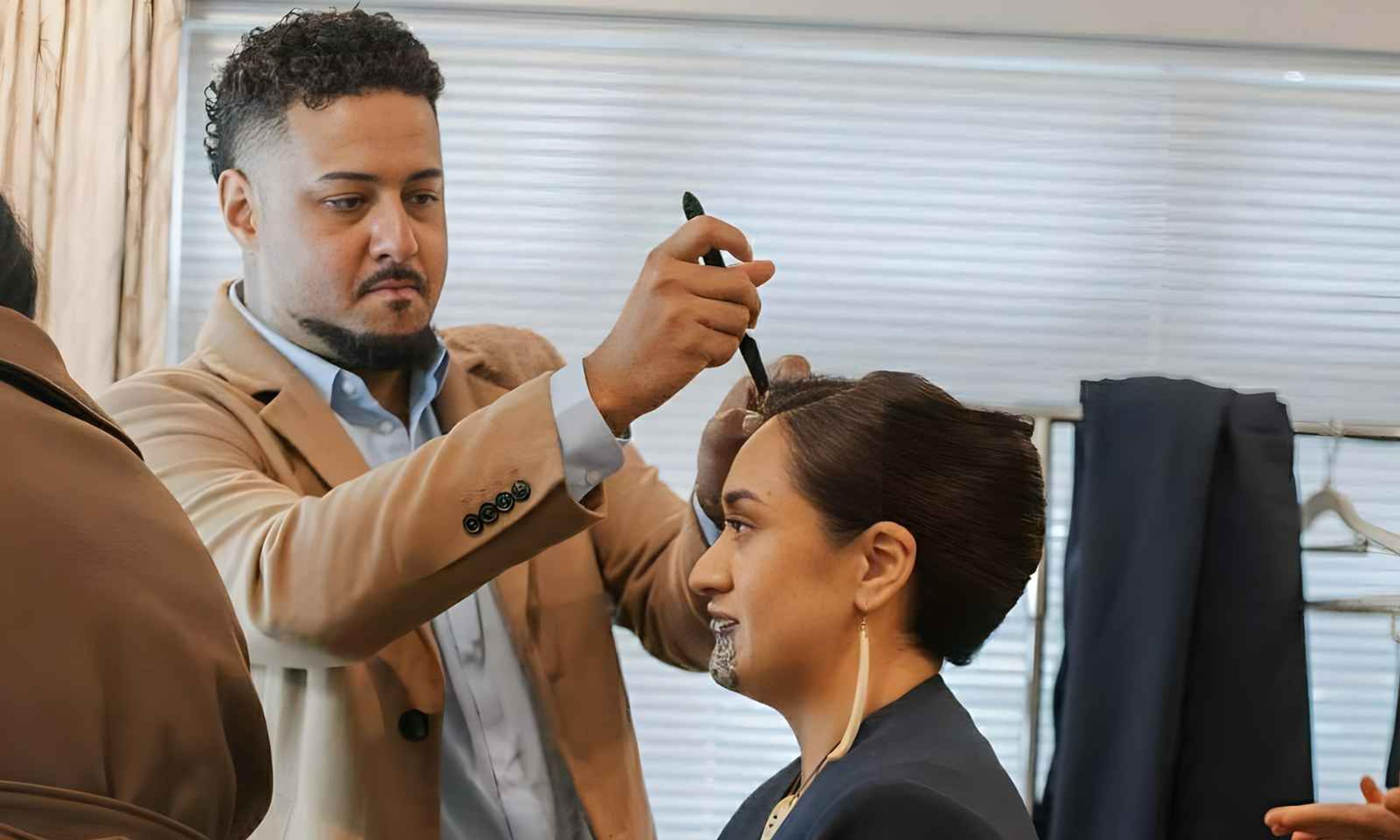
From the friendly isles to Koroneihana: The Tongan hairstylist trusted with a Queen


Two seasonal workers found dead at Bay of Plenty orchard

Pacific Warned: Global powers will act if island nations remain weak

From the friendly isles to Koroneihana: The Tongan hairstylist trusted with a Queen
Pacific advocates have been recognised for their services to survivors of abuse in state and faith-based care.
Moeapulu Frances Eileen Tagaloa and Rūpene Amato are both appointed Companions of the King’s Service Order (KSO) in the New Year Honours 2025 list.
For both Tagaloa and Amato, this recognition is not just a personal achievement, it is a testament to the thousands of survivors who have yet to speak out and to those who never had the chance.
“I'm just so grateful. It's such an honour,” Tagaloa said.
Tagaloa has long been an advocate for Pacific survivors, leading efforts to promote their voices often in communities where the shame of abuse can prevent people from coming forward.
The Royal Commission of Inquiry into Historical Abuse in State and Faith-based Care has been New Zealand’s longest and most complex inquiry, documenting nearly 3000 experiences.
Five per cent of survivors who spoke out were Pacific.
Tagaloa’s own journey as a survivor began at the age of five, but it wasn’t until her late teens that she began to piece together the pieces of her traumatic past.
In 2002, she decided to confront the Catholic Church about the abuse she endured, a decision that set her on a path of advocacy and activism.
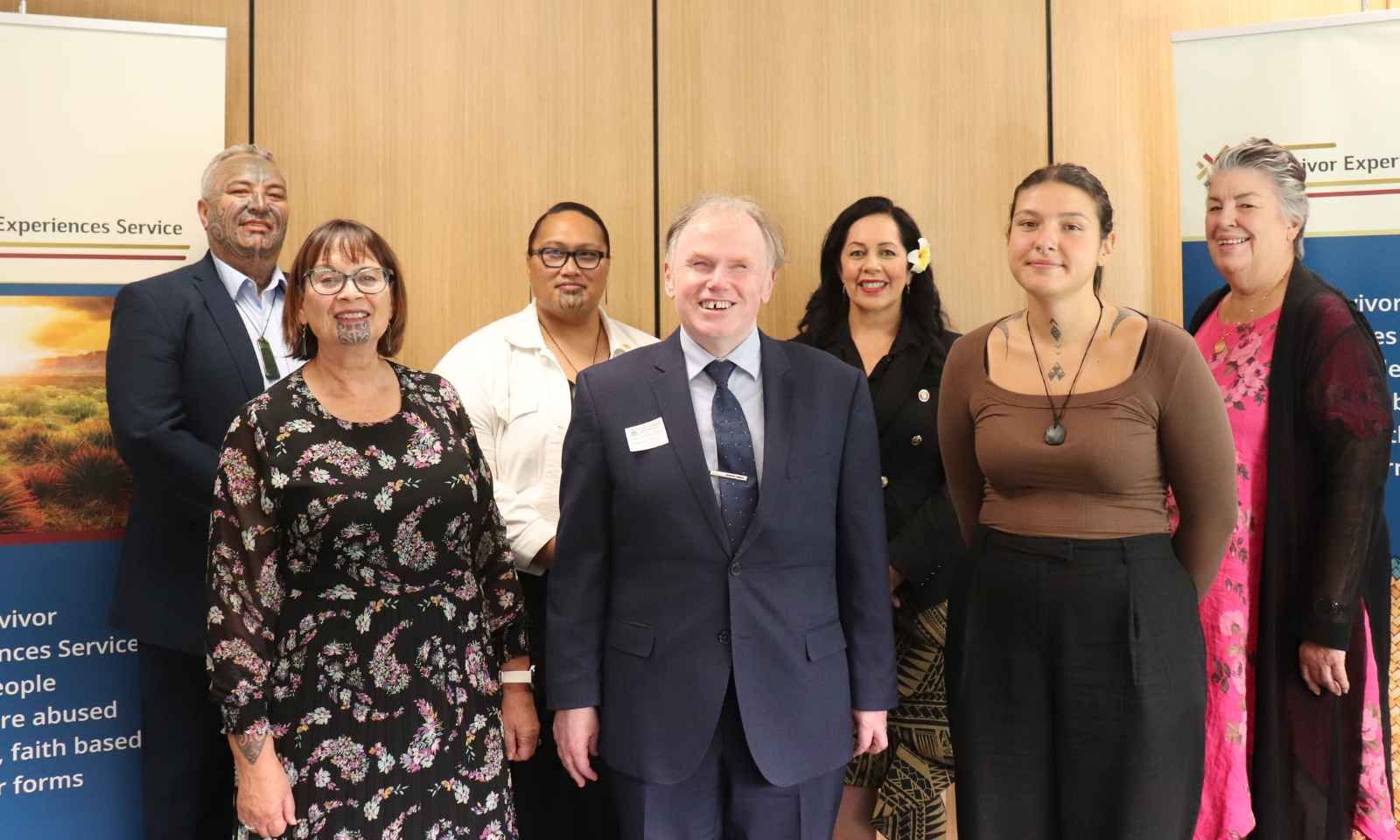
Survivor Experiences Board. Tagaloa is third from right. Photo/Survivor Experiences
Over the years, she has played an important part in the Royal Commission of Inquiry, helping to bring the stories of Pacific survivors to light despite the cultural barriers that so often prevent them from being told.
“My faith has been a major part of my healing from faith-based abuse. So this is a great honour that I think I feel like I'm receiving on behalf of a lot of survivors of abuse.”
Tagaloa admitted witnessing first-hand the barriers that keep Pacific people from seeking justice.
“As I got involved, I realised someone needed to speak up for survivors, and Pacific survivors especially, because there were not many Pacific survivors coming forward at all.
“We knew that Pacific children, particularly and vulnerable adults, have been also abused by faith-and-state-based care.
“Just from the records, we knew that, but not many Pacific people actually came forward, and it's just that huge shame that we have in our community around abuse that's really prevented a lot of Pacific people from coming forward.”
Tagaloa has been a member of the Survivors Advisory Group of Experts (SAGE) for the Inquiry since 2019.
Watch Moeapulu Frances Tagaloa's interview on Pacific Mornings ahead of the government apology in November:
She co-chaired the Survivor Experiences Service Board, which was established from an inquiry recommendation.
As a member of the Crown Response Unit’s Redress Design Group, she supported a survivor-led design for a proposed new redress system.
Amato, also appointed a Companion of the King’s Service Order, has dedicated much of his life to supporting survivors, particularly men and those from Pacific and Māori communities.
An advocate for takatāpui and rainbow community survivors, his advocacy journey began when he joined the Male Survivors of Abuse Board in Waikato.
He shared his experience as a survivor after suffering abuse at the age of 11 at St Joseph’s School in Wairoa.
Amato knew the pain of not being able to speak out and was determined to change that for others.
“It's quite sad because it takes a lot for men to come forward around topics like this.
“Men struggle to go to the doctors, let alone come forward and talk about abuse because it's almost like they're less of a man, but in my view by sharing stories it allows other people to share as well, and by sharing it's a part of healing.”
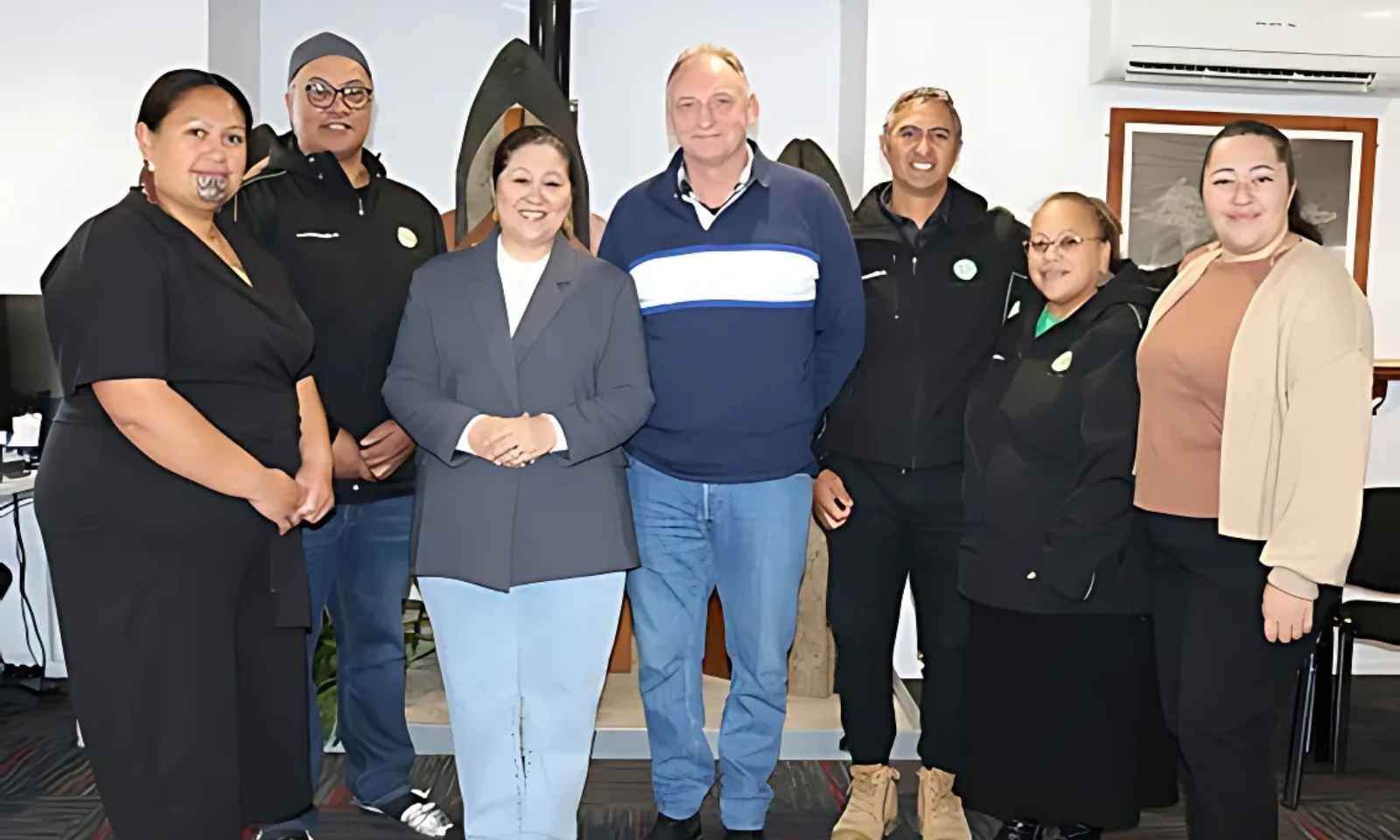
Amato, second from left during the Governor General's visit to Wairoa. Photo/Wairoa District Council
He said his involvement in the Royal Commission of Inquiry was deeply emotional, but he felt supported by his family.
“I’m in a little bit of disbelief. I’m really humbled by the acknowledgement of not only my work, but those who have worked tirelessly before me or with me, and those who are going to come after us.
“To me, it’s a reflection of our acknowledgement of the survivors who have either passed away or who are still fighting the fight.”
Amato has now permanently moved back home to Wairoa.
“It's been a rollercoaster of emotions, really. I think one of the best things I did actually was move back to Wairoa and help the community here with the rebuilding from the cyclone Gabrielle.”
For survivors of abuse in care, Amato said it’s been a big year with the release of the 3000-page report and the apology from the government.
“It’s a start, and an apology is only a true apology if the actions are alongside that apology.”
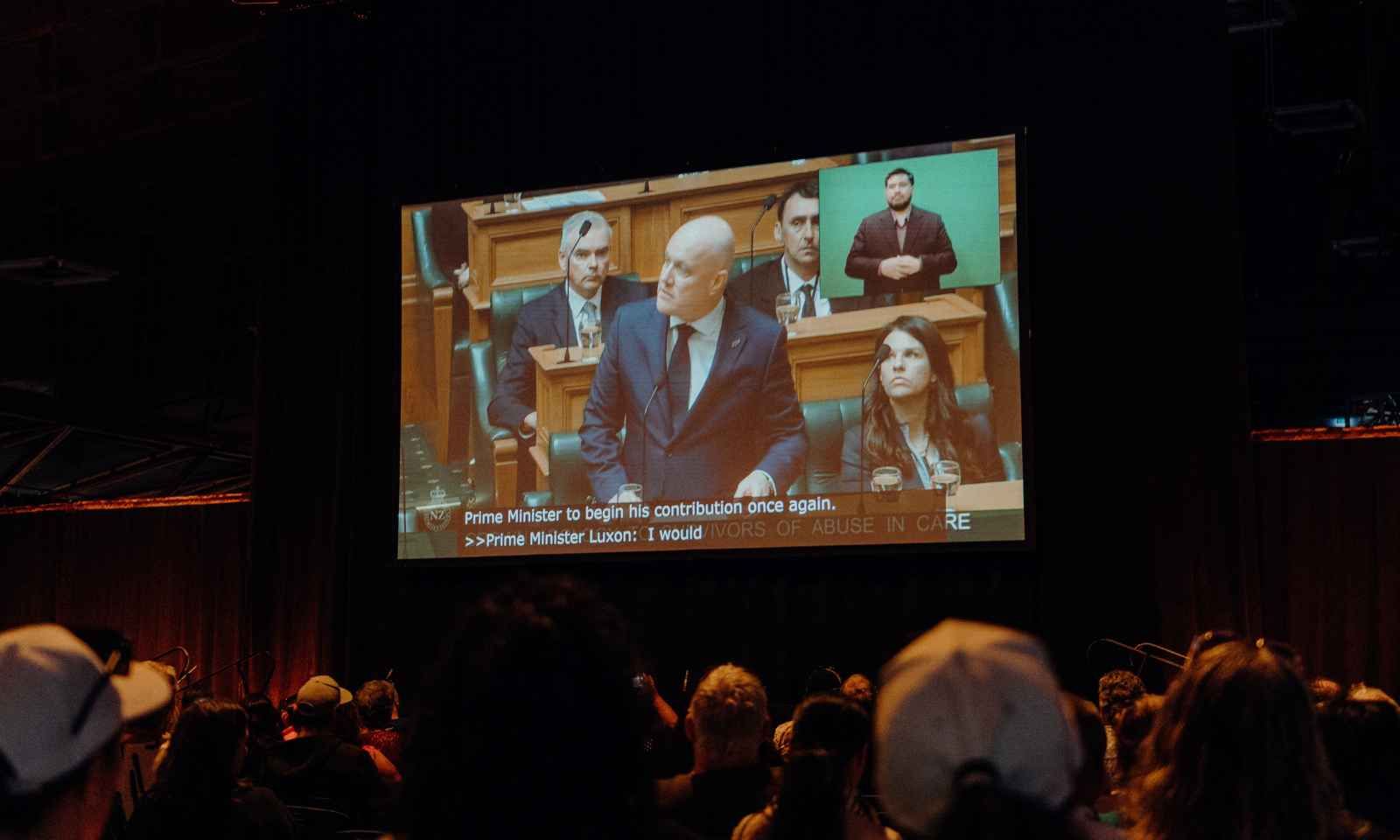
Luxon delivered the government's apology to survivors of abuse in care in November. Photo/Joseph Safiti
The Government has committed to addressing the Royal Commission’s 138 recommendations, focusing on three key areas: Acknowledging the abuse, supporting survivors, and preventing future harm.
The 12th of November has also been established as a National Remembrance Day to honour survivors and reflect on the harm caused by state care systems.
Looking ahead, Tagaloa aimed to continue to advocate for survivors and keep the government accountable.
“The Royal Commission of Inquiry into Abuse and Care was set up by the government. They knew there was a problem.
“They knew something had to be done. So now this is the time to take action and to do it, and we have this community of survivors now that are really built from pain and trauma.”
Amato’s work also continues.
“I would like to be remembered as a warrior for social justice. Even though it's been given to me, it's for all of those people who have worked as much, if not more, than I have.
“It's just a symbol of recognition for survivors of abuse and for our rainbow community. I strongly urge our Pacific and Māori men to come forward and speak their truth.”